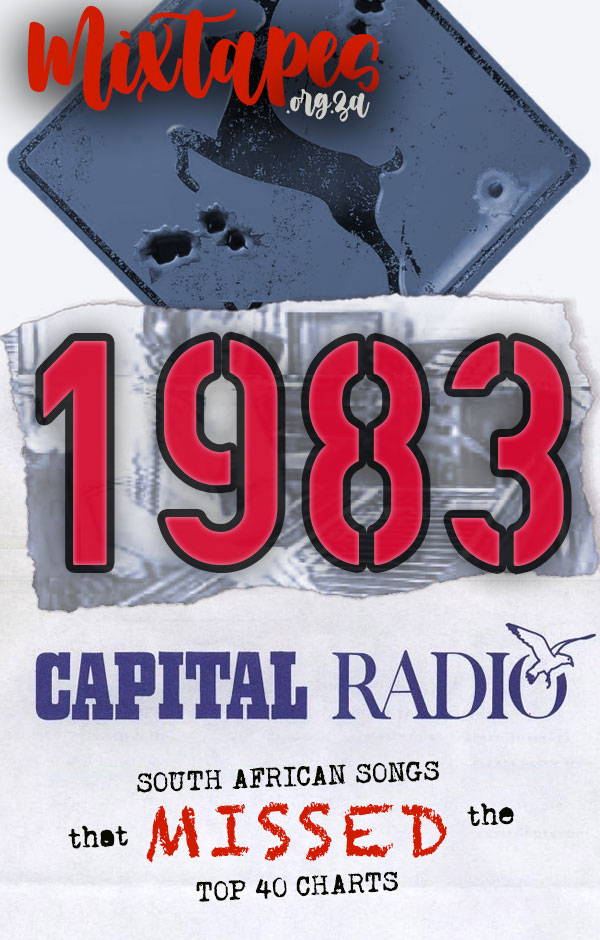
1983 was the year in which the fewest South African songs charted on the Capital Radio Top 40 countdown: only eight songs made it. Yet this week’s playlist reveals that there were many more chart worthy songs. As per usual, there artists who charted but who had further songs that could have been hits, for example eVoid, Juluka and Via Afrika. But there were several others who inexplicably did not chart at all, such as Brenda and the Big Dudes (with “Weekend Special”), Steve Kekana (with “Night Boot Control”), Sipho Mabuse (with “Rise”) and Stimela (with “I Hate Telling A Lie”).
While Juluka had been experimenting with a fusion between western and South African musical styles for several years and Hotline had begun to do so in 1982, 1983 saw such musical hybridity becoming more of a trend than something unusual, especially with the very noticeable arrival of debut albums from eVoid and Via Afrika. In addition, The Dread Warriors and Splash provided a South African influenced reggae sound while The Boyoyo Boys, Steve Kekana, Sipho Mabuse, Letta Mbulu, The Soul Brothers and Stimela performed pop songs based in neo-traditional township forms. Dog Detachment and What Colours released songs influenced by the UK new wave scene and Sue Charlton, Lesley Rae Dowling and The Insisters released more mainstream pop songs. James Phillips, in his Bernoldus Niemand guise, continued the satirical tradition of the likes of Jeremy Taylor and David Kramer by using his voice as a vocal costume, critiquing society from the perspective of what Randy Newman referred to as an untrustworthy narrator.
1983 was also the year in which two members of Splash – Jose Charles and Rufus Radebe – were sentenced to effective four-year prison terms (later reduced to 17 months) for singing ‘revolutionary songs’ at a Wits Free People’s Concert. One of the songs was a cover of Steel Pulse’s “A Tribute to Martyrs”, which included references to Steve Biko and Nelson Mandela. They were charged with promoting violence and supporting the ANC, even though they argued in their defence that they were Rastafarians and as such were anti-violence.
Indeed, it was difficult to perform as a South African musician with left-leaning sympathies in South Africa. Pete Spong of the Dread Warriors noted that it was difficult for a band with a white and black members to travel together, especially when it came to arranging travel documents (including to neighbouring countries). Sipho Mabuse and Johnny Clegg both spoke about being stopped at road blocks and interrogated because of whites and blacks travelling together while touring, with Harari and Juluka respectively (Harari has a white woman manager who travelled with the group).
All the artist here have their stories about how difficult it was to be heard at the time. Fortunately we can give them a listen now.
Show Playlist + Poll–

